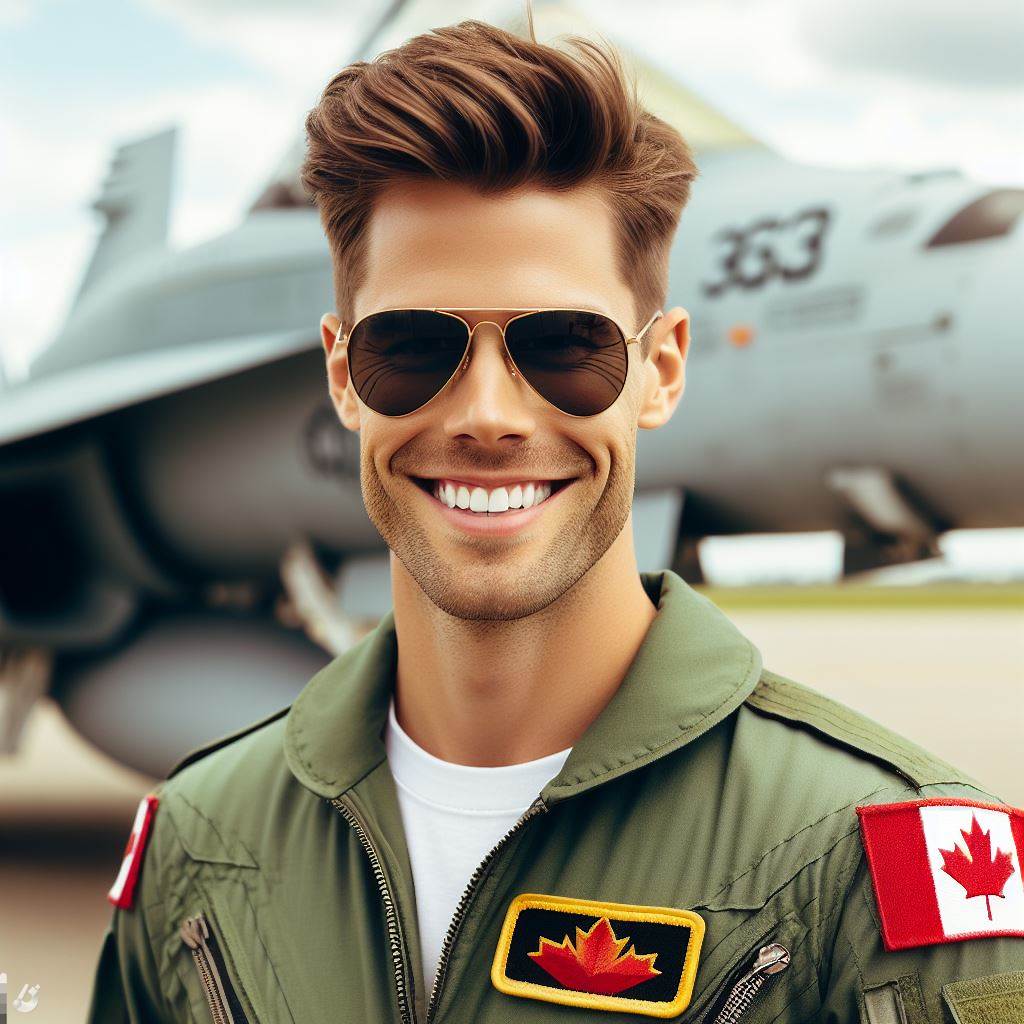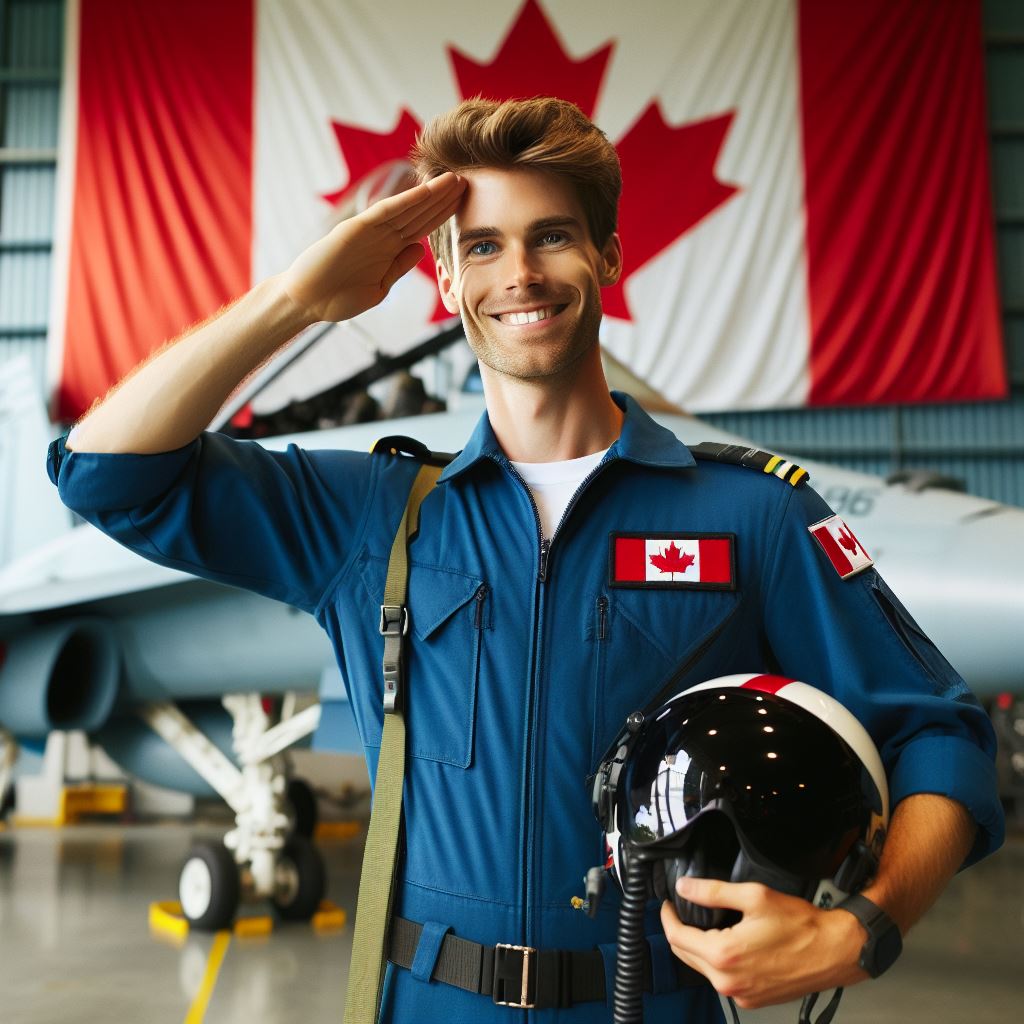Introduction
Balancing life as a Canadian pilot can be a daunting task, given the demanding nature of their profession.
Finding work-life balance is crucial to maintain mental and physical well-being.
It’s essential to address the challenges and explore strategies to achieve harmony in this high-pressure career.
Striking the right balance allows pilots to fulfill their responsibilities while enjoying personal fulfillment, nurturing relationships, and pursuing hobbies and interests.
In this blog, we will delve into the importance of work-life balance and provide valuable insights for Canadian pilots to navigate their lives more effectively.
Overview of the Life of a Canadian Pilot
Being a Canadian pilot comes with a great deal of responsibilities and demands.
The long working hours, irregular schedules, and time away from home can make it challenging to balance personal and professional commitments.
However, the high level of dedication and professionalism required makes it a rewarding career choice.
Responsibilities and Demands
A Canadian pilot has numerous responsibilities, both on the ground and in the air.
They must ensure the safety and security of passengers and crew members, as well as the aircraft itself.
They are responsible for inspecting and maintaining the plane to ensure its proper functioning before each flight.
Moreover, pilots must stay up-to-date with the latest aviation regulations, weather patterns, and navigational systems.
They need to make split-second decisions in critical situations and possess excellent problem-solving skills.
Long Working Hours, Irregular Schedules, and Time Away from Home
One of the downsides of being a Canadian pilot is the demanding schedule.
Pilots often have long working hours that include weekends, holidays, and overnight flights.
They must be prepared to adapt to changing schedules and be available at short notice.
This irregularity in their work schedules can have a significant impact on their personal lives.
Pilots often miss important family events, birthdays, and anniversaries due to their job commitments.
Moreover, the time spent away from home can be mentally and emotionally challenging.
High Level of Professional Commitment and Dedication
To be a successful Canadian pilot, a high level of professional commitment and dedication is essential.
Pilots must continuously update their skills and knowledge through regular training and evaluations.
They have a responsibility to maintain their physical and mental well-being to ensure optimum performance.
Pilots also need to maintain a professional image and uphold the highest standards of conduct.
They must exhibit excellent communication and teamwork skills, as they often work closely with cabin crew, ground staff, and air traffic controllers.
In short, balancing life as a Canadian pilot can be challenging due to the responsibilities and demands associated with the profession.
Unlock Your Career Potential
Visualize a clear path to success with our tailored Career Consulting service. Personalized insights in just 1-3 days.
Get StartedThe long working hours, irregular schedules, and time away from home can impact personal relationships.
However, with the high level of professional commitment and dedication required, being a pilot in Canada can also be deeply rewarding.
Read: Women in Canadian Aviation
Challenges Faced by Canadian Pilots in Balancing Life
Maintaining Personal Relationships
- Juggling work commitments with personal relationships can be challenging for Canadian pilots.
- Time constraints and irregular schedules make it hard to spend quality time with loved ones.
- Frequent absences due to work trips can strain relationships and create emotional distance.
- Communication becomes vital for pilots to stay connected with their partners, friends, and family.
- Planning ahead and making the most of the time together helps to maintain strong personal bonds.
Impact of Frequent Travel and Jet Lag
- Frequent traveling can take a toll on the physical and mental well-being of Canadian pilots.
- Long flights and constant time zone changes disrupt the body’s internal clock, leading to jet lag.
- Jet lag can cause fatigue, insomnia, digestive issues, and overall discomfort.
- Adjusting to different climates and environments can be challenging for pilots’ health.
- Maintaining a healthy lifestyle, staying hydrated, and practicing good sleep habits are essential for managing jet lag.
Difficulty of Finding Time for Hobbies, Social Life, and Personal Interests
- The demanding schedules of Canadian pilots often make it challenging to pursue personal hobbies and interests.
- Limited time between flights and responsibilities can restrict opportunities for leisure activities.
- Pilots may find it difficult to engage in social gatherings and events due to conflicting schedules.
- Balancing work and personal life becomes crucial for pilots to maintain their overall well-being and happiness.
- Allocating specific time slots for hobbies, socializing, and personal interests is essential to create a balanced lifestyle.
In fact, Canadian pilots face various challenges when it comes to balancing their lives.
Maintaining personal relationships requires effective communication and careful planning to overcome time constraints.
The impact of frequent travel and jet lag on physical and mental well-being calls for healthy habits and self-care practices.
Finding time for hobbies, social life, and personal interests is a struggle that pilots must navigate to achieve a fulfilling and well-rounded life.
Despite these challenges, with proper time management and support from loved ones, Canadian pilots can strike a balance between their demanding profession and personal life.
Read: Canadian Pilot Licenses Explained
Strategies for achieving work-life balance as a Canadian pilot
Effective time management
- Plan ahead by creating a schedule and sticking to it.
- Set priorities and focus on important tasks first.
- Avoid procrastination by breaking tasks into smaller, manageable chunks.
- Utilize technology tools, such as calendar apps or task managers, to stay organized.
- Delegate responsibilities when possible to lighten your workload.
- Learn to say no to non-essential tasks or commitments that may overwhelm you.
Open communication with family and loved ones
- Maintain open and honest communication with your partner, children, and other family members.
- Discuss your schedule in advance and make plans together to accommodate each other’s needs.
- Regularly check in with your loved ones to show your support and care.
- Share your challenges and concerns with them, allowing them to understand your profession better.
- Arrange regular quality time with your family to strengthen your bond and create lasting memories.
Making the most of downtime
- Engage in self-care activities to relax and rejuvenate, such as exercising, meditating, or practicing mindfulness.
- Pursue hobbies or interests that bring you joy and provide mental stimulation.
- Stay connected with friends and colleagues through social activities or online platforms.
- Use downtime to catch up on personal tasks, such as paying bills or organizing your home.
- Consider taking short vacations or mini getaways to refresh your mind and recharge.
Seeking support and maintaining a healthy lifestyle
- Develop a strong support system with fellow pilots or aviation professionals who can relate to your experiences.
- Stay connected with industry associations or forums for guidance and networking opportunities.
- Look for counseling services or support groups that specialize in addressing the unique challenges faced by pilots.
- Prioritize your health by eating a balanced diet, getting enough sleep, and exercising regularly.
- Practice stress management techniques, such as deep breathing exercises or yoga, to cope with the demands of your profession.
- Consider mindfulness or relaxation apps to help you unwind during breaks or before sleep.
In essence, as a Canadian pilot, achieving work-life balance requires effective time management, open communication with loved ones, making the most of downtime, and seeking support while maintaining a healthy lifestyle.
By implementing these strategies, you can lead a fulfilling and well-rounded life both in and out of the cockpit.
Read: The Future of Aviation in Canada

Importance of Self-Care and Mental Wellness for Canadian Pilots
As a Canadian pilot, it is crucial to prioritize self-care in order to maintain both physical and mental health.
Ignoring one’s well-being can have a detrimental impact on performance, safety, and overall quality of life.
Here are some key points to consider:
Prioritizing Self-Care for Pilots
It is essential for pilots to recognize that taking care of oneself should be a top priority.
This involves making time for activities and practices that promote well-being, such as regular exercise, healthy eating, and sufficient rest.
By prioritizing self-care, pilots can enhance their overall health and resilience, enabling them to handle the physical and mental demands of their profession more effectively.
Impact of Stress, Fatigue, and Sleep Deprivation
The aviation industry is known for its demanding work environment, which can lead to increased levels of stress, fatigue, and sleep deprivation among pilots.
These factors have a significant impact on performance and safety.
Stress, if left unmanaged, can impair cognitive function and decision-making abilities.
It is crucial for pilots to develop effective stress management techniques, such as mindfulness or relaxation exercises, to mitigate its negative effects.
Fatigue and sleep deprivation can significantly impair a pilot’s alertness and reaction time, which can pose serious risks during flight operations.
It is vital for pilots to ensure they get enough restorative sleep and take regular breaks to combat fatigue.
Resources for Seeking Professional Help or Support
Recognizing the need for professional help or support is essential for pilots experiencing difficulties with their mental wellness.
There are numerous resources available to pilots who require assistance:
- Employee Assistance Programs: Many airlines provide confidential counseling services to their employees, including pilots. These programs offer professional support for various personal and work-related issues.
- Peer Support Programs: Peer support programs connect pilots with trained colleagues who can provide assistance, guidance, and a listening ear. These programs foster a sense of camaraderie and create a safe environment for sharing experiences.
- Mental Health Professionals: Pilots should not hesitate to seek support from mental health professionals, such as psychologists or psychiatrists, who specialize in aviation-related issues. These experts can provide targeted treatment and guidance tailored to pilots’ unique challenges.
- Aviation Medical Examiners: Aviation medical examiners play a crucial role in assessing and monitoring pilots’ mental and physical fitness to fly. They can provide valuable advice and guidance for maintaining optimal well-being.
Pilots should remember that seeking help is a sign of strength and responsibility.
By reaching out to these resources, they can ensure they receive the necessary support to navigate the challenges of their profession with confidence and resilience.
In general, self-care and mental wellness are of utmost importance for Canadian pilots.
By prioritizing self-care, recognizing the impact of stress, fatigue, and sleep deprivation, and accessing the available resources for professional help or support, pilots can maintain a healthy and balanced life both inside and outside the cockpit.
Read: Pilot Salary Ranges in Canada
Success stories and experiences of Canadian pilots who have achieved work-life balance
Balancing a career as a Canadian pilot can be a challenging task.
The demands of flying can often lead to long hours and a lack of time for personal life.
However, there are success stories and experiences of pilots who have managed to achieve a healthy work-life balance.
These stories serve as inspiring examples for others in the industry.
Inspiring stories of pilots who have successfully balanced their personal and professional lives
One such story is that of Captain Emily Thompson, a pilot with 10 years of experience.
Despite the demanding nature of her job, Emily has managed to find equilibrium between her career and personal life.
In her own words, Emily says, “It took some trial and error, but I have found a way to prioritize my family and hobbies while still excelling in my profession.
It’s all about effective time management and setting boundaries.”
Emily emphasizes the importance of setting clear boundaries between work and personal life.
She ensures that she dedicates specific days or time slots exclusively for her family and hobbies.
By doing so, she can be fully present in both aspects of her life.
Another inspiring pilot who has achieved work-life balance is Captain Michael Harris.
He shares his experience, saying, “I realized early on that being successful in my career doesn’t mean sacrificing my personal life.
It’s about finding a harmonious blend.”
To maintain this balance, Michael focuses on effective communication with his family and employer.
He ensures that his family understands the demands of his job and that his employer respects his need for personal time.
This mutual understanding allows him to fulfill his responsibilities on both fronts.
Throughout his career, Michael has also discovered the importance of self-care.
He believes that taking care of oneself physically and mentally is crucial for maintaining a healthy work-life balance.
Regular exercise, meditation, and spending quality time with loved ones are some of the strategies he incorporates into his routine.
Personal accounts or testimonials from pilots who have found strategies that work for them
Captain Sarah Mitchell echoes the significance of self-care. She says, “As pilots, we often prioritize the needs of others while neglecting our own well-being.
It’s essential to prioritize self-care and not feel guilty about it.”
Sarah emphasizes the need to carve out time for oneself, whether it’s pursuing a hobby, engaging in self-reflection, or simply relaxing.
She believes that by prioritizing self-care, pilots can become more effective in both their personal and professional lives.
Another strategy that many pilots find useful is efficient time management.
Captain James Anderson shares his approach, saying, “I have a detailed schedule that outlines my work and personal commitments. This helps me allocate time effectively.”
James ensures that he plans ahead and allocates specific time slots for family activities, socializing, and rest.
By following this schedule diligently, he can make the most of his time and avoid feeling overwhelmed by the demands of his career.
In brief, achieving work-life balance as a Canadian pilot is possible, as exemplified by these success stories and experiences.
By setting boundaries, effective communication, prioritizing self-care, and efficient time management, pilots can find harmony between their personal and professional lives.
These inspiring stories serve as a reminder that it is indeed possible to excel in one’s career while nurturing relationships and personal well-being.
Conclusion
A healthy work-life balance is crucial for Canadian pilots to maintain overall well-being and prevent burnout.
It allows them to be more focused, alert, and efficient in their job, ultimately ensuring the safety of their passengers and crew.
To achieve work-life balance, pilots need to prioritize self-care and make conscious efforts to take care of their physical and mental health.
They should engage in regular exercise, eat nutritious meals, and get enough sleep to recharge their bodies and minds.
In addition to self-care, maintaining a healthy balance also involves spending quality time with family and friends.
Pilots should make time for their loved ones and participate in activities that bring them joy and relaxation.
Furthermore, disconnecting from work during off-duty periods is crucial for pilots to unwind and recharge.
They should unplug from technology and engage in activities that help them relax and rejuvenate.
Work-life balance is vital for Canadian pilots as it ensures their well-being and enhances their performance in the cockpit.
By prioritizing self-care and making conscious efforts to maintain a healthy balance, pilots can not only improve their own lives but also contribute to a safer aviation industry.
Let us all take steps towards achieving balance in our own lives as pilots and prioritize our well-being.




